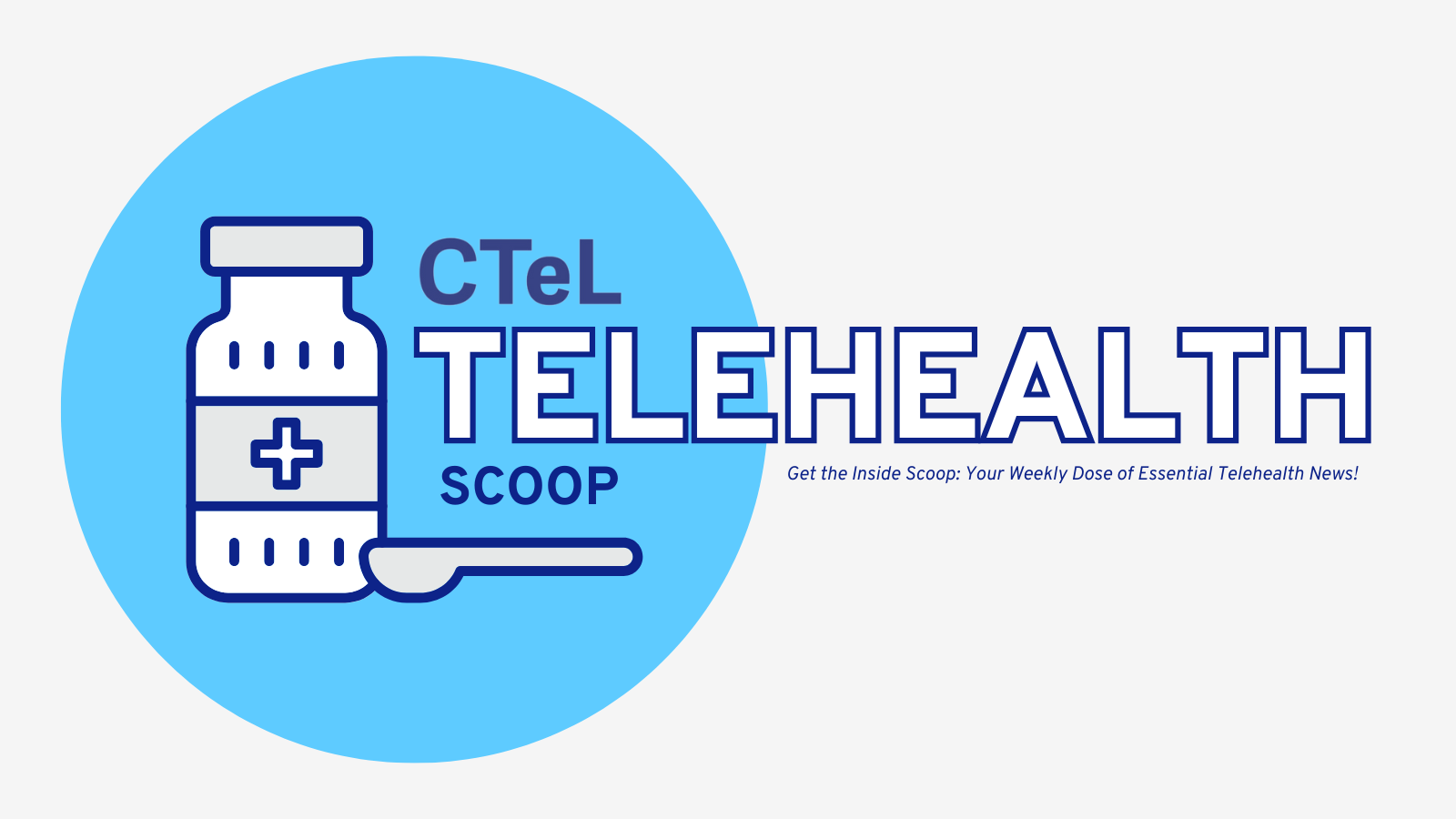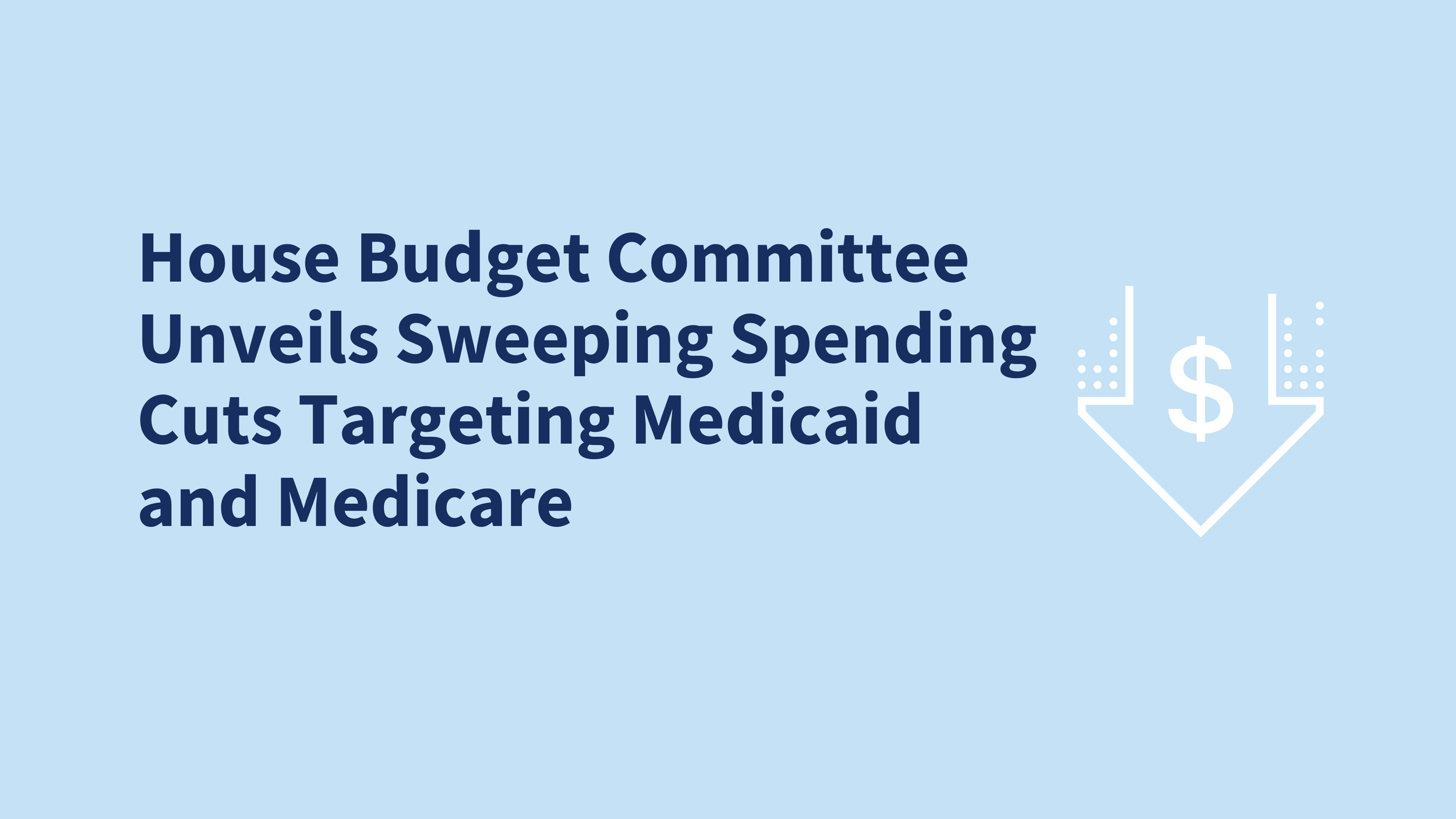
House Budget Committee Unveils Sweeping Spending Cuts Targeting Medicaid and Medicare
The House Budget Committee has released a budget resolution outlining significant fiscal changes, sparking a national debate about the future of healthcare access in the United States. The framework proposes $4.5 trillion in tax cuts and a $4 trillion increase to the debt limit, balanced by substantial spending reductions, primarily targeting Medicaid and, to a lesser extent, Medicare. This move has ignited concerns among healthcare advocates and beneficiaries, while proponents argue it’s a necessary step towards fiscal responsibility.
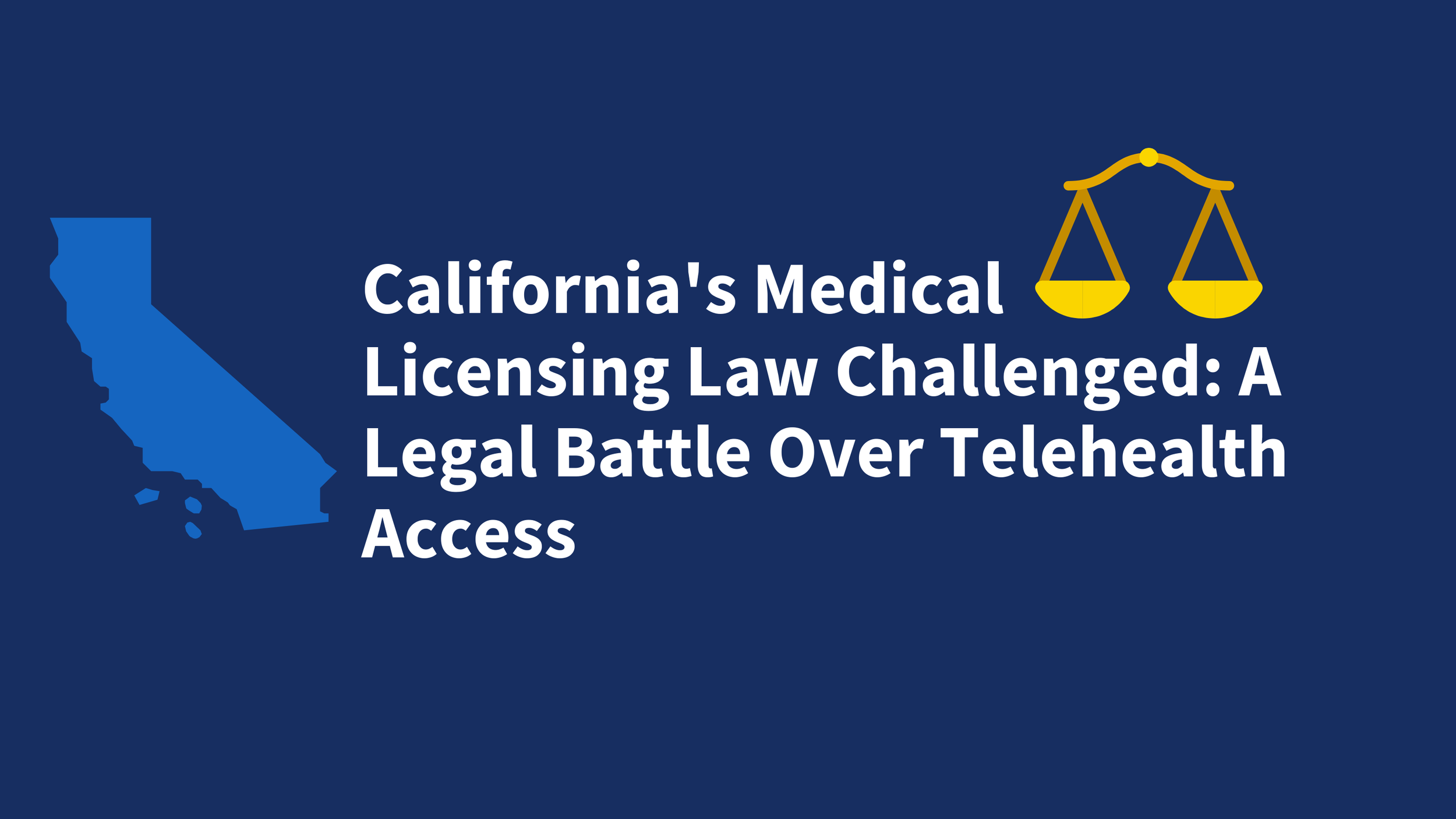
California's Medical Licensing Law Challenged: A Legal Battle Over Telehealth Access
In a recent court ruling, the United States District Court for the Eastern District of California dismissed a constitutional challenge against the state’s medical licensing requirements. The lawsuit, brought by Dr. Sean McBride and patient G. Shellye Horowitz, sought to challenge California’s mandate that all doctors treating patients in the state—whether in person or via telehealth—must obtain a California medical license.
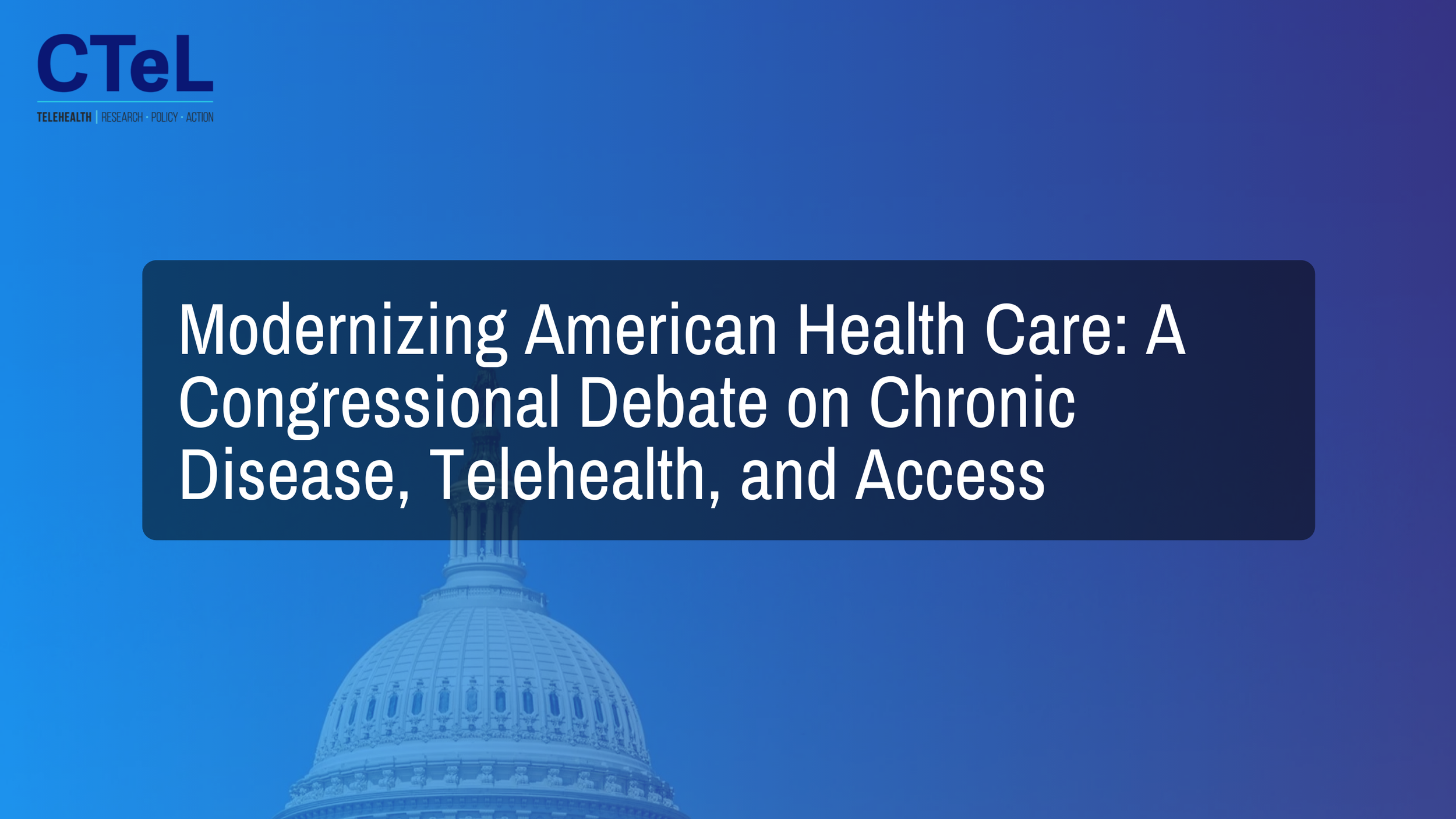
Modernizing American Health Care: A Congressional Debate on Chronic Disease, Telehealth, and Access
The House Ways and Means Health Subcommittee recently convened a pivotal hearing on "Modernizing American Health Care: Creating Healthy Options and Better Incentives." As chronic diseases skyrocket and access to care remains a pressing concern, the hearing examined innovative solutions, policy roadblocks, and the role of technology in shaping the future of American health care.
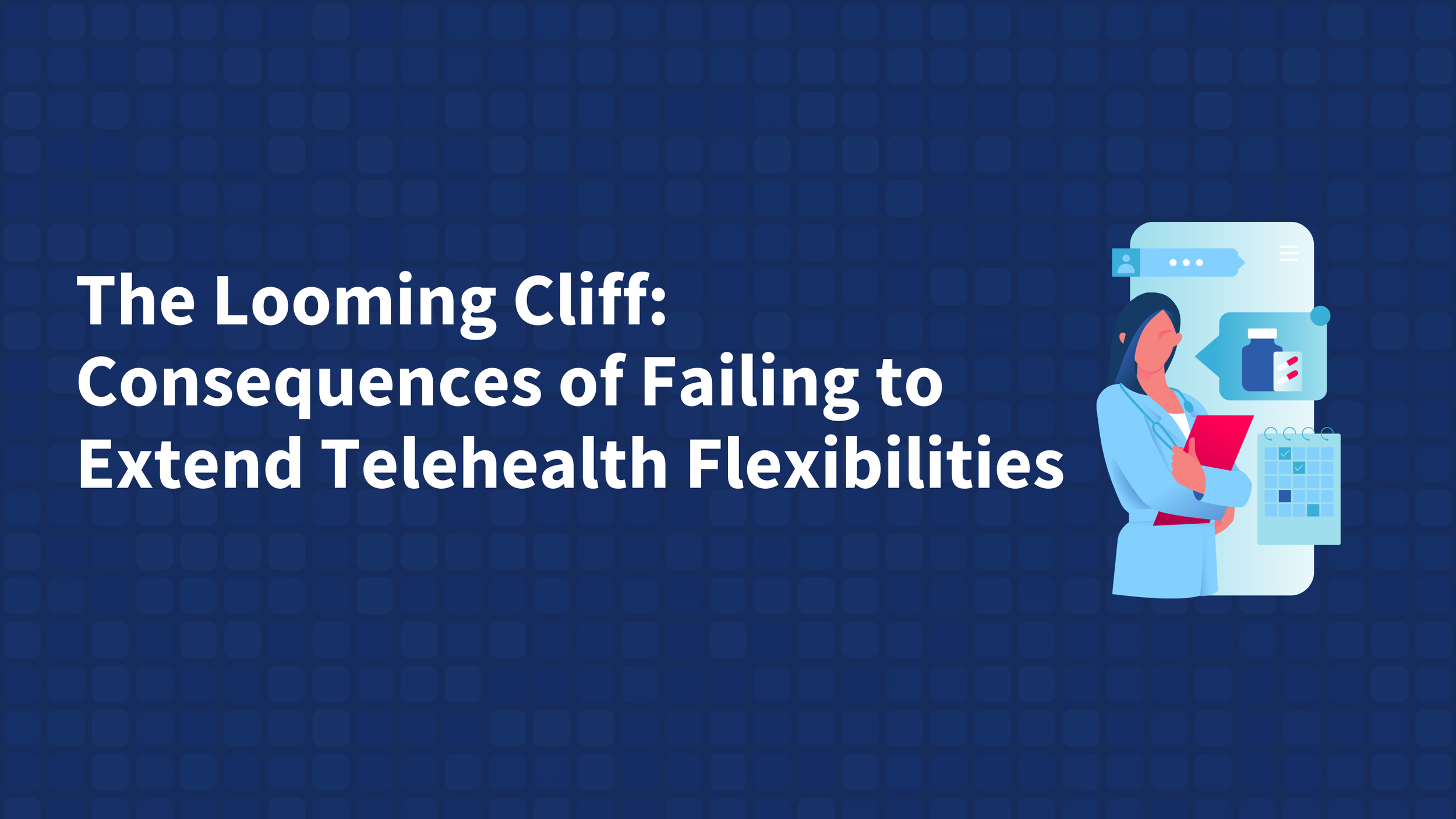
The Looming Cliff: Consequences of Failing to Extend Telehealth Flexibilities
Congress's failure to pass a Continuing Resolution (CR) that includes an extension of telehealth flexibilities will have far-reaching and detrimental consequences across the healthcare landscape. The current pause on certain telehealth restrictions, crucial for maintaining access to care during the pandemic, is set to expire. Without Congressional action, we face a "telehealth cliff" with significant repercussions for patients, providers, and the healthcare system as a whole.
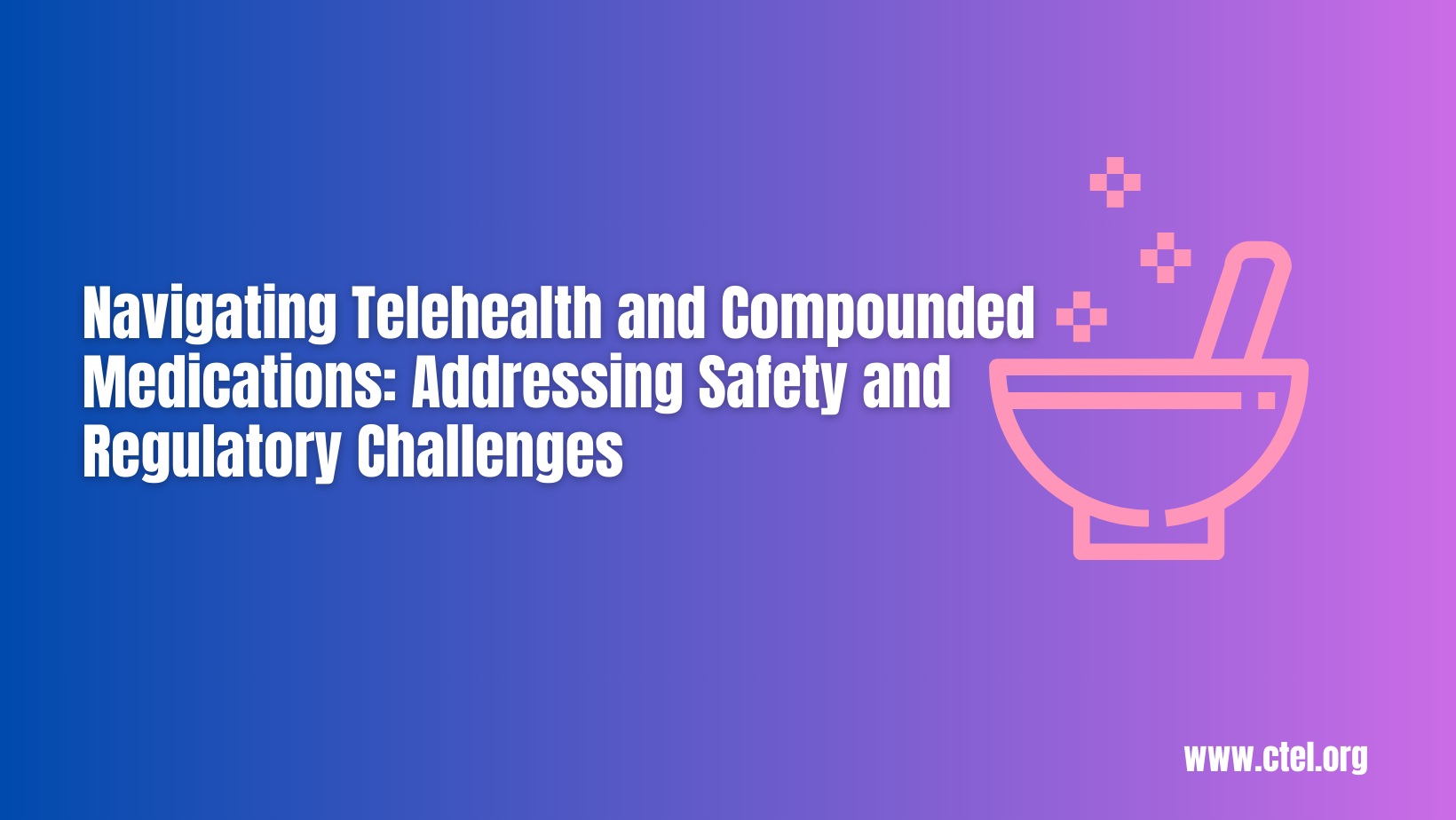
Navigating Telehealth and Compounded Medications: Addressing Safety and Regulatory Challenges
Imagine receiving a prescription for a custom-made medication from a telehealth provider you’ve never met in person—one that bypasses the traditional pharmacy system, lacks FDA oversight, and could put your health at risk.
With the rapid rise of telehealth, compounded medications have entered a legal gray area, creating concerns about patient safety, drug efficacy, and regulatory enforcement. While telehealth has expanded access to care, it has also made it easier for unscrupulous actors to exploit regulatory gaps, leading to fraudulent prescribing, substandard medications, and potential harm to patients.
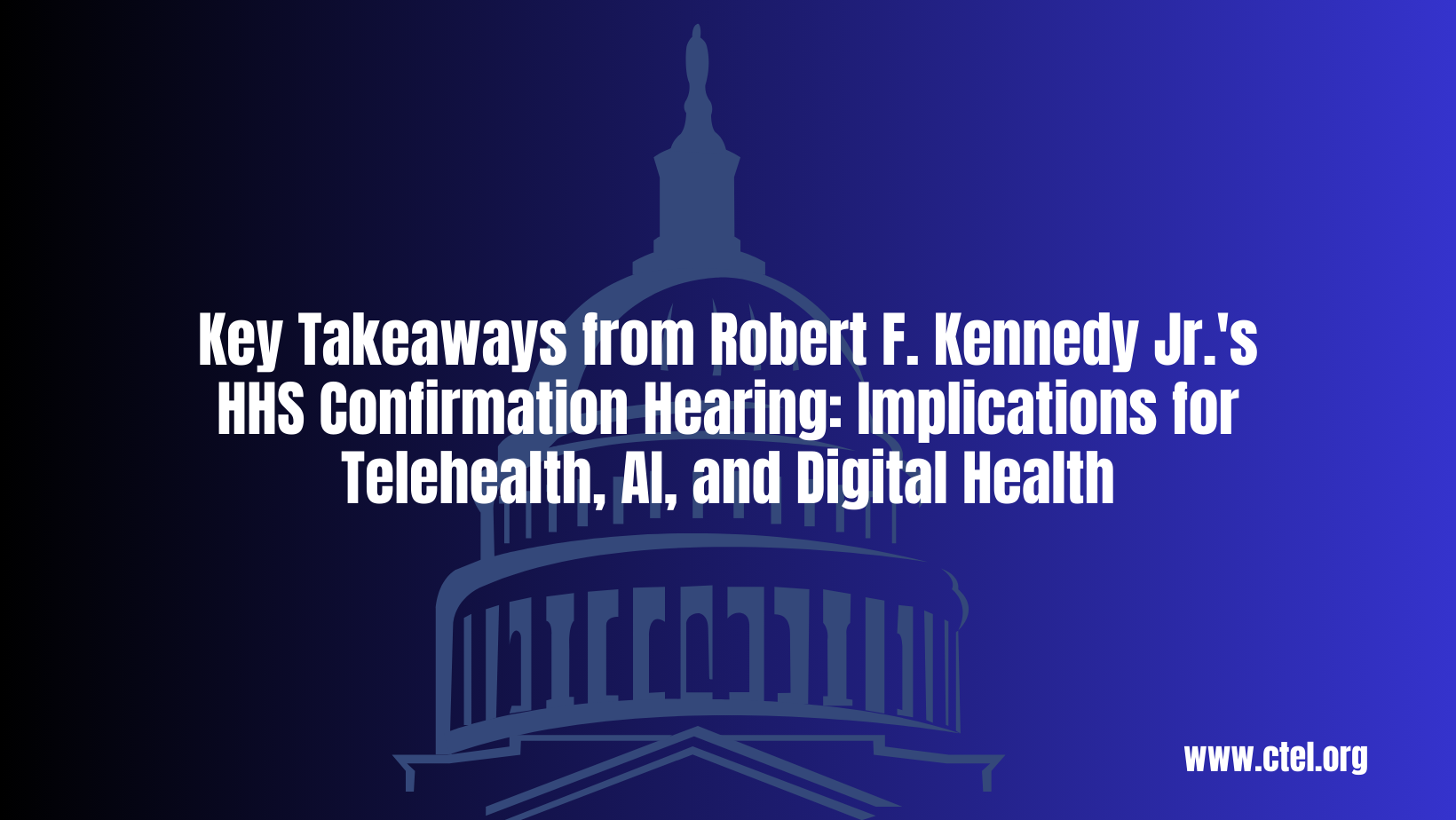
Key Takeaways from Robert F. Kennedy Jr.'s HHS Confirmation Hearing: Implications for Telehealth, AI, and Digital Health
Robert F. Kennedy Jr. recently appeared before the Senate for his confirmation hearing as the nominee for Secretary of the U.S. Department of Health and Human Services (HHS) under the Trump administration. The hearings, held over multiple days, covered a wide range of healthcare policy issues, including chronic disease prevention, vaccine safety, public health transparency, and regulatory oversight.
Notably, Kennedy’s testimony also touched on emerging healthcare technologies, including telehealth, artificial intelligence (AI) in medicine, and digital health innovation. His statements revealed a cautious but open approach to these advancements, emphasizing the need for transparency, accountability, and evidence-based policymaking.

Healthcare Providers & Immigration Enforcement: Key Legal Protections & Patient Rights
In light of evolving immigration enforcement policies, healthcare providers—including those in telehealth, hospitals, and health systems—must be well-informed about their rights and responsibilities to ensure patient care remains uncompromised. The National Immigration Law Center's January 2025 publication, "Health Care Providers and Immigration Enforcement: Know Your Rights, Know Your Patients’ Rights," offers comprehensive guidance on this subject.
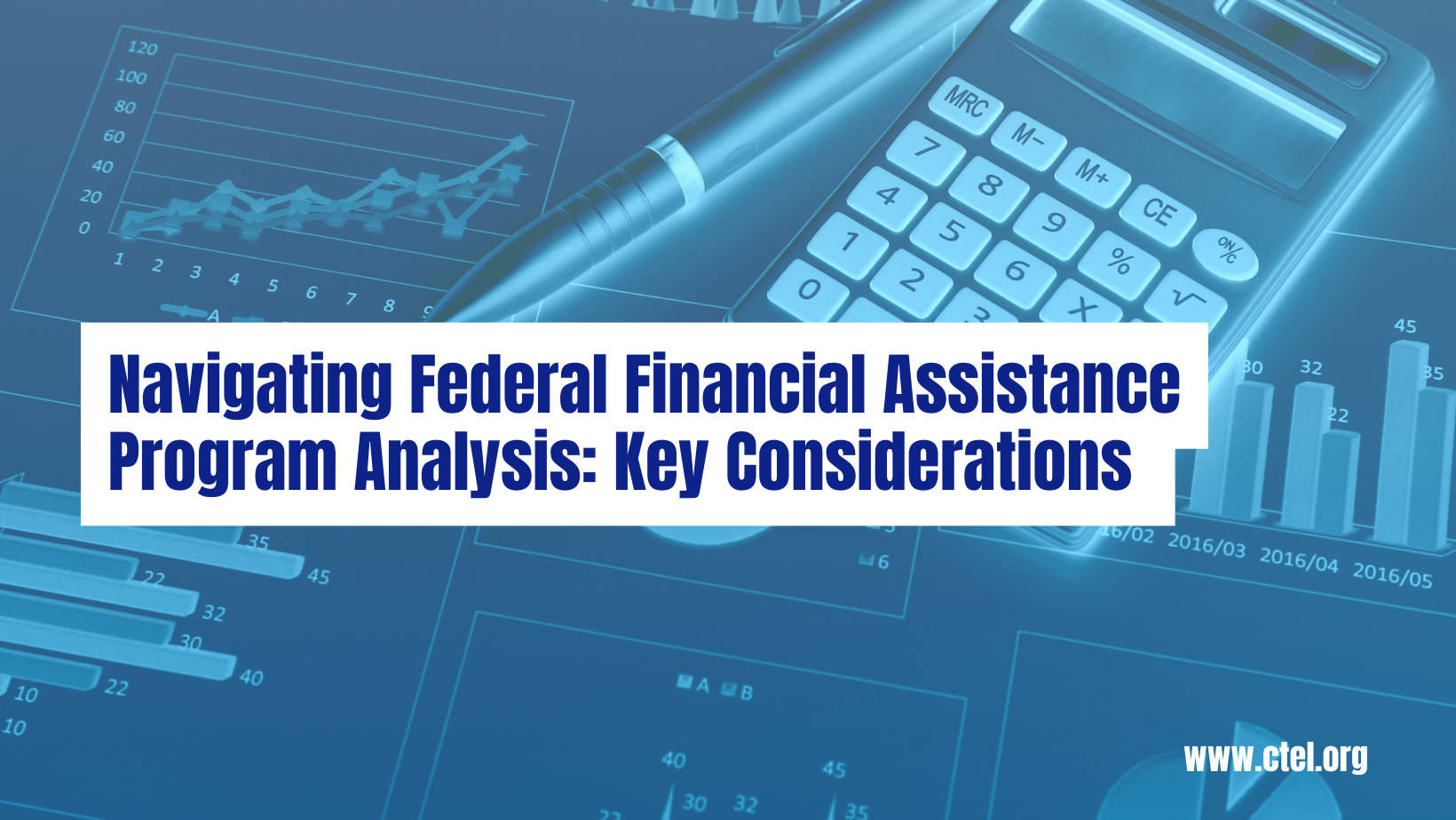
Navigating Federal Financial Assistance Program Analysis: Key Considerations
On January 23, 2025, the Office of Management and Budget (OMB) issued Memorandum M-25-13, outlining new guidance for federal agencies to assess financial assistance programs against specific policy directives. These directives influence funding decisions, regulatory compliance, and statutory obligations that may impact CTeL members engaged in telehealth and digital health initiatives.
Agencies administering federal grants and financial assistance programs must now provide detailed responses to a series of policy-related questions before obligating or disbursing funds. CTeL members applying for or currently receiving federal funding should assess how these requirements may affect ongoing and future projects.

Navigating Federal Spending Pauses: What Hospitals, Health Systems, and Providers Need to Know
The healthcare landscape faces a significant and abrupt challenge following the Office of Management and Budget (OMB)’s recent directive to temporarily pause federal spending on financial assistance programs. This action, effective as of 5:00 PM ET tonight, has wide-ranging implications for healthcare providers, hospitals, and health systems that rely on federal funding to support critical programs.

The Long-Term Financial Benefits of Telehealth for Patients and Providers
Telehealth, the delivery of healthcare services through digital communication technologies, has transformed the healthcare landscape. While its rise was accelerated by the COVID-19 pandemic, its long-term financial benefits for both patients and healthcare providers are ensuring its continued growth and integration into modern care models. From cost savings to operational efficiencies, telehealth presents a win-win solution for everyone involved in healthcare delivery.

CTeL’s Push for Telehealth Expansion: Why This Moment Matters
As the 119th Congress begins its work, the Center for Telehealth and e-Health Law (CTeL) is urging lawmakers to prioritize telehealth in the upcoming reconciliation bill. This legislation represents a unique opportunity to extend critical Medicare telehealth access and address issues like facility fees that could undermine telehealth’s cost-saving potential.

Advocating for Equity and Accountability in Medicare Advantage Policies
At the Center for Telehealth and e-Health Law (CTeL), we are dedicated to shaping the future of digital health through thoughtful advocacy and research. Recently, we submitted comments to the Centers for Medicare and Medicaid Services (CMS) regarding their proposed policies for the Medicare Advantage (MA) and Medicare Prescription Drug programs for contract year 2026. These policies represent a critical opportunity to ensure that emerging technologies like artificial intelligence (AI) are deployed ethically and equitably within healthcare systems.
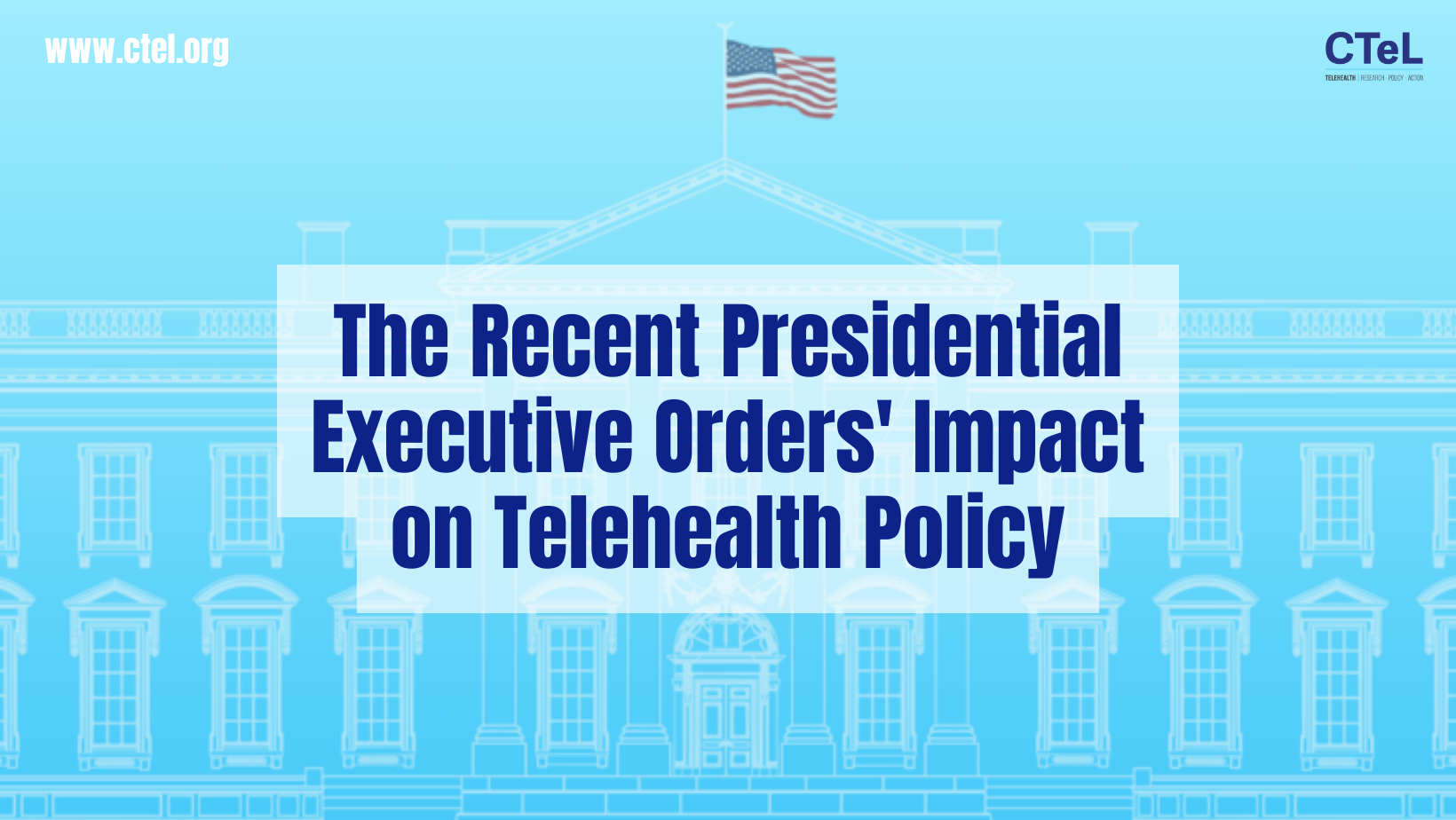
The Recent Executive Orders' Impact on Telehealth Policy: What You Need to Know.
On January 20, 2025, President Donald Trump signed a series of executive orders with wide-reaching implications across multiple sectors, including healthcare. Among these was the directive to withdraw the United States from the World Health Organization (WHO), a move that could have significant consequences for telehealth, digital health innovation, and global health collaboration. Additionally, the regulatory freeze memorandum signed the same day may further influence telehealth policy and pending waivers.
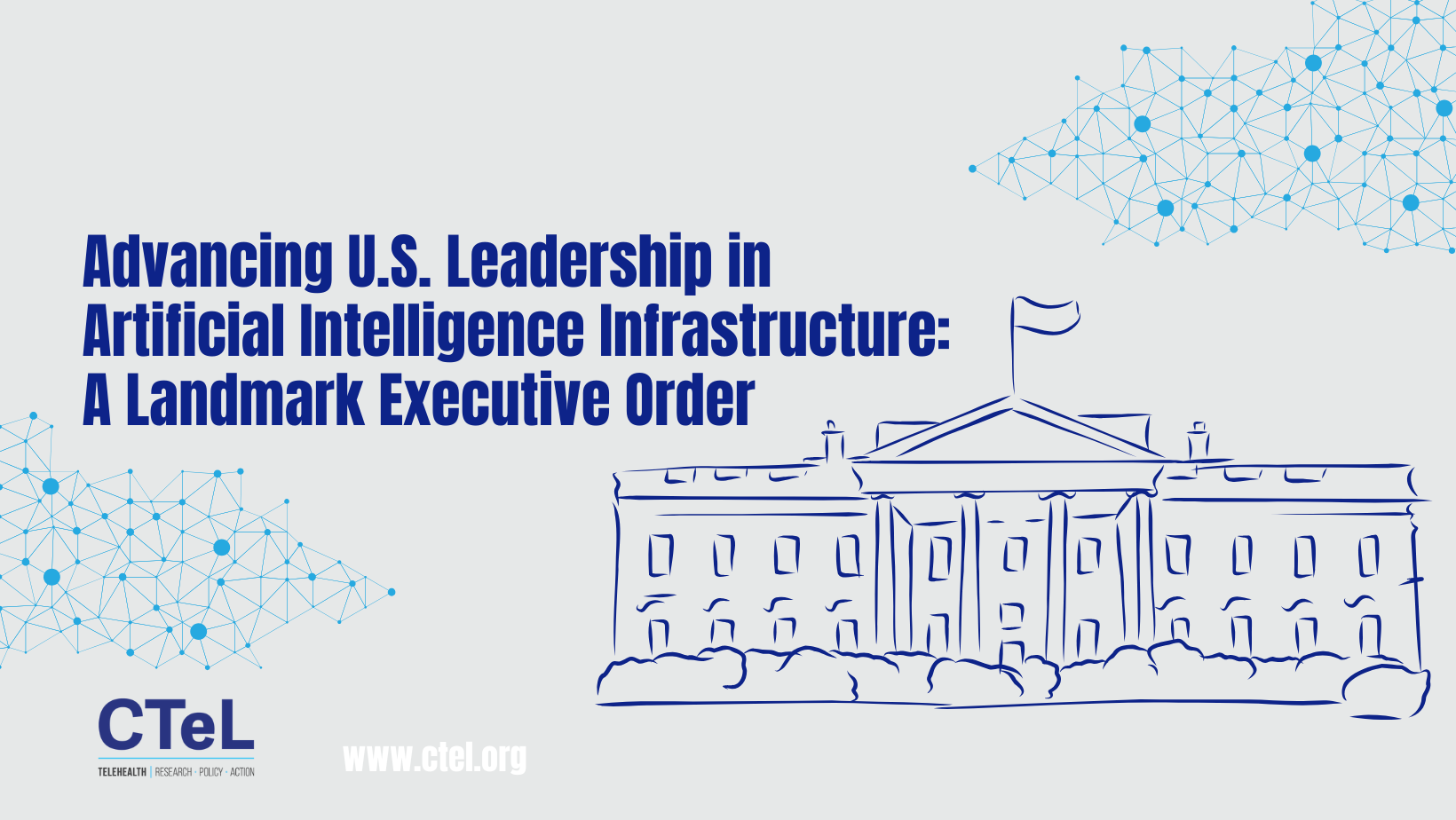
Advancing U.S. Leadership in Artificial Intelligence Infrastructure: A Landmark Executive Order
On January 14, 2025, President Biden issued the Executive Order on Advancing U.S. Leadership in Artificial Intelligence Infrastructure, a bold move to position the United States at the forefront of global AI development. The Center for Telehealth and e-Health Law (CTeL) applauds this initiative as a forward-thinking approach to fostering innovation while ensuring necessary safeguards are in place.
This landmark executive order aims to accelerate the development of AI infrastructure by leveraging federal resources, promoting clean energy, and ensuring equitable access to AI advancements.

DEA Releases Final Rules on OUD Treatment, Continuity of Care and Proposed Rules for Special Registrations.
The U.S. Drug Enforcement Administration (DEA) has issued a final rule to update and refine regulations surrounding the prescribing of controlled substances via telemedicine, with a particular focus on balancing public health needs and the prevention of substance misuse. This rule is part of an effort to clarify how the practice of telemedicine, which grew significantly during the COVID-19 pandemic, can continue to support patient access to necessary care without compromising the safety measures associated with controlled substances.
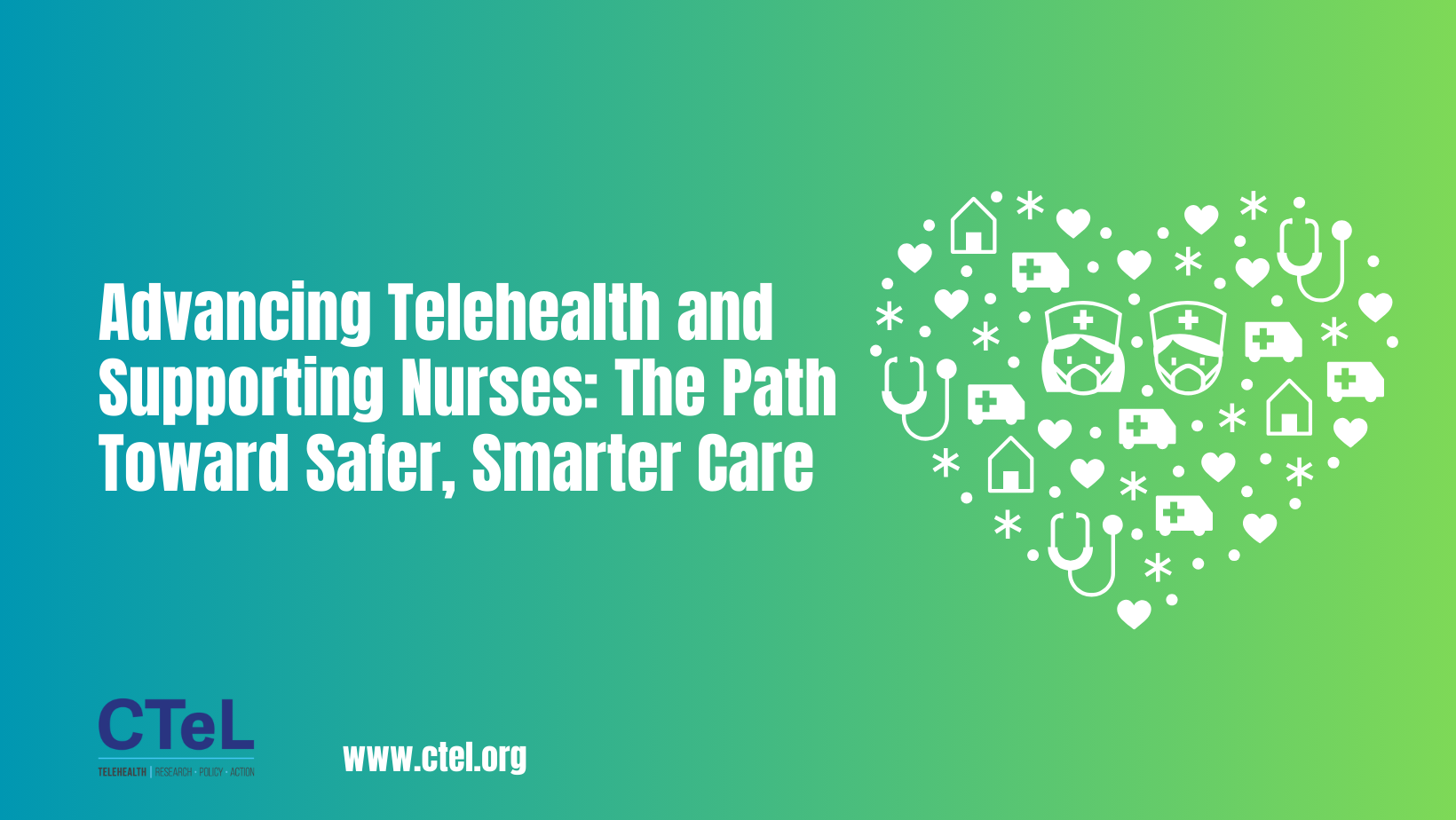
Advancing Telehealth and Supporting Nurses: The Path Toward Safer, Smarter Care
The U.S. is in the midst of a healthcare workforce crisis, with over a million registered nurses holding active licenses yet choosing not to work at the bedside. Unsafe working conditions, chronic understaffing, and the increasing reliance on untested technologies have created an unsustainable environment for providers and patients alike. On January 16, 2025, National Nurses United (NNU) is leading a National Day of Action with marches, protests, and rallies across the country to demand systemic reforms. Nurses are calling for safe staffing levels, patient protections, and robust oversight of artificial intelligence (AI) technologies in healthcare. This collective effort highlights the urgency of addressing workforce shortages and the critical role of nurses in advocating for patient safety and equitable care.

Budget Reconciliation and the Future of Telehealth Expansion Waivers: What’s at Stake?
With the telehealth expansion waivers authorized under the American Relief Act of 2025 set to expire on March 31, 2025, Congress faces a pivotal moment in healthcare policy. As the Republican-led 119th Congress leverages budget reconciliation to pursue spending and tax reforms, the future of telehealth hangs in the balance. The decisions made in the coming months will determine whether millions of Americans retain access to essential virtual care services.
A Republican trifecta taking power in Washington, party leaders are confident in their ability to pass major spending and tax reform in what President-elect Trump hopes will be “one big, beautiful bill.” Despite not having a filibuster-proof Senate majority, Republicans can still achieve many of their legislative goals through the process of budget reconciliation, which is shaping up to be one of the 119th Congress’ top priorities.
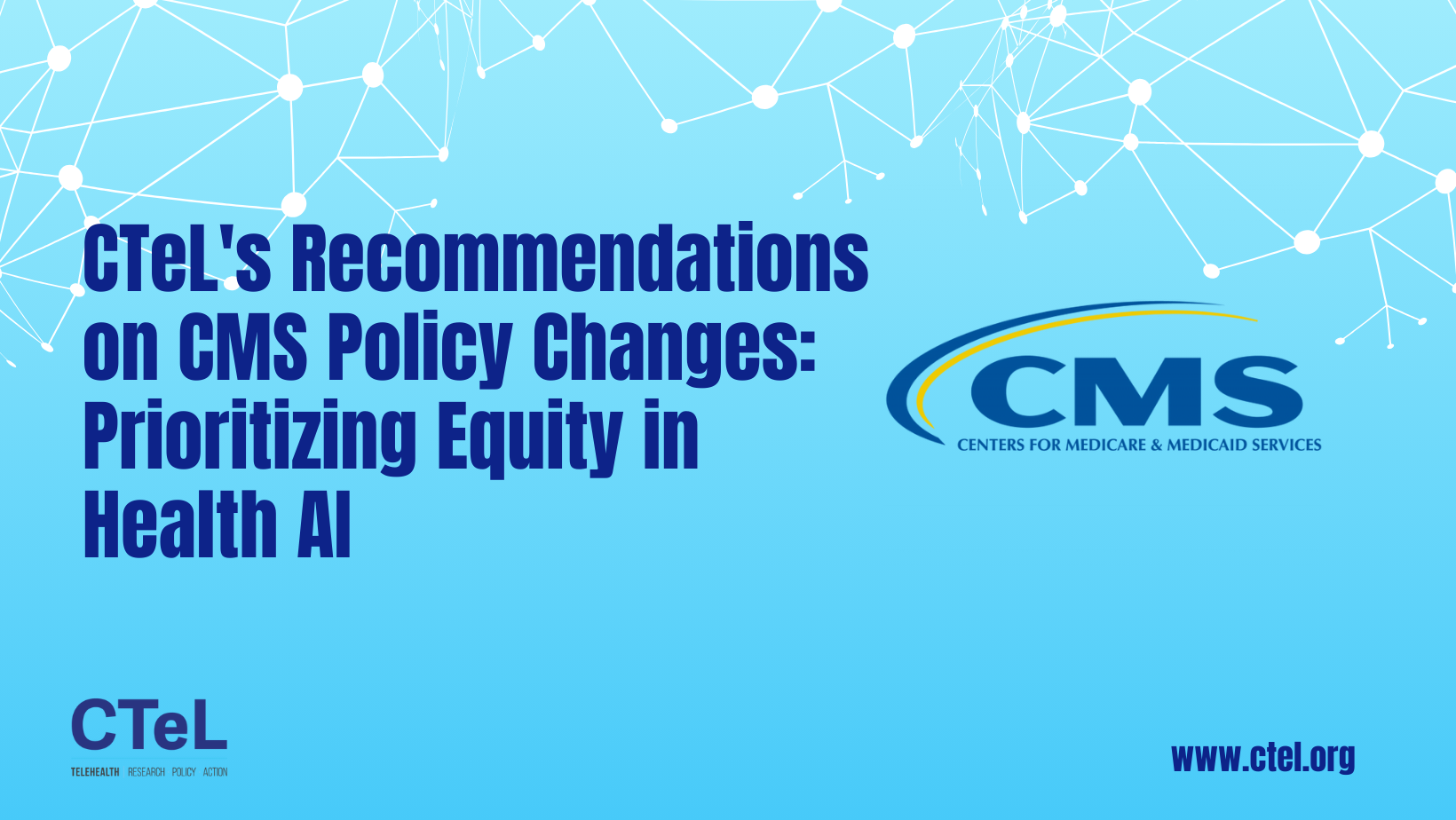
CTeL's Recommendations on CMS Policy Changes: Prioritizing Equity in Health AI
As the digital transformation of healthcare continues to reshape the landscape, the Center for Telehealth and e-Health Law (CTeL) is committed to ensuring equitable, ethical, and effective implementation of emerging technologies like artificial intelligence (AI). In response to the Centers for Medicare & Medicaid Services' (CMS) proposed policies for Contract Year 2026, we have provided detailed comments and recommendations aimed at addressing critical challenges in Medicare Advantage (MA) programs and beyond.

Top 5 Trends to Watch in Telehealth in 2025
The telehealth industry is poised for another transformative year in 2025, with technological advancements, policy shifts, and consumer demand driving new innovations and challenges. Below, we explore the top five trends that will shape the future of virtual care and digital health.
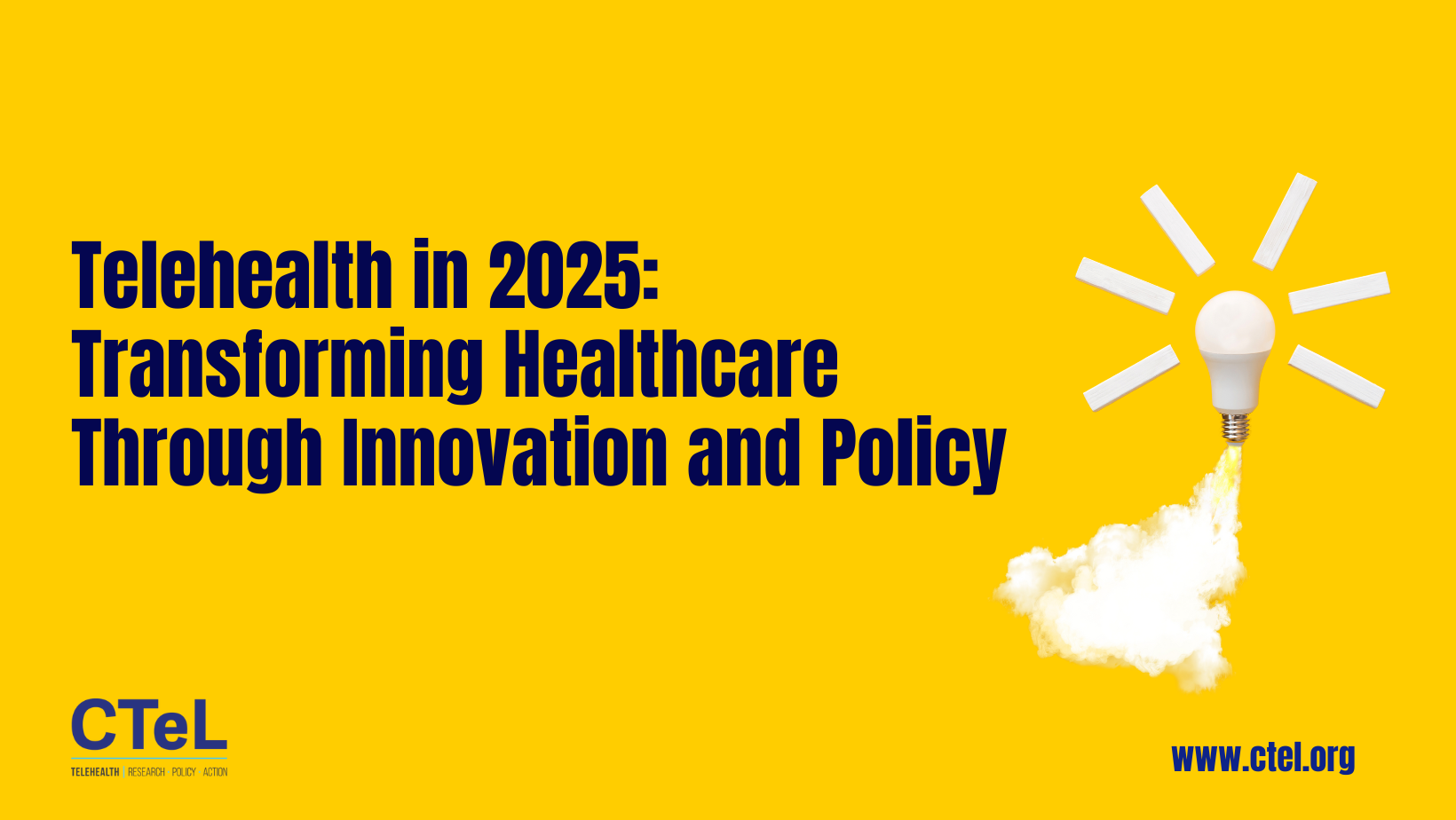
Telehealth in 2025: Transforming Healthcare Through Innovation and Policy
The healthcare landscape of 2025 looks vastly different from its pre-2020 predecessor. What began as an emergency response mechanism during the pandemic has evolved into a sophisticated, integrated care delivery system. Telehealth is no longer a supplementary tool—it has become a cornerstone of healthcare delivery, driving improvements in patient outcomes, provider capabilities, and the economics of care.
Recent analysis by the National Health Institute reveals that telehealth now accounts for 23% of all healthcare encounters nationwide, with some specialties reporting virtual visit rates exceeding 50%. This shift is more than just a change in delivery methods; it represents a fundamental reimagining of healthcare accessibility, efficiency, and effectiveness.
Subscribe to the Telehealth Scoop!
Get the latest telehealth policy news you need to know, right to your inbox. Stay up-to-date on all the latest CTeL happenings, events, actions, and more!

